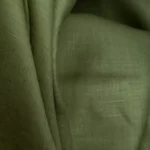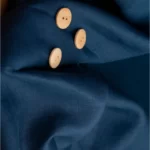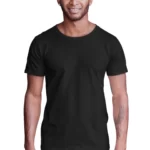Tanace Organics Pvt. Ltd
Introducing Tanace Organics Pvt. Ltd., a distinguished manufacturer and exporter of bulk organic banana fabric. Committed to creating Earth-friendly and sustainable solutions, we are dedicated to providing you with the highest quality banana fabrics while prioritizing eco-conscious processes.
At Tanace Organics, we understand the importance of responsible production methods. Our banana fabrics undergo meticulous organic processing and dyeing techniques, ensuring minimal environmental impact. By utilizing banana plant fibers, we contribute to the efficient use of agricultural waste and promote circular economy practices.
With our budget-friendly offerings, we make sustainable fashion accessible to all. By choosing our organic banana fabrics, you not only contribute to a greener future but also support ethical and fair-trade practices. Explore our diverse range of products and experience the perfect blend of style, comfort, and sustainability.
Visit our website, www.blily.in, to explore the world of Tanace Organics Pvt. Ltd. Join us in our mission to promote a healthier planet, one fabric at a time, as we embrace the innovative potential of banana fibers in the realm of sustainable fashion.
What is Organic Banana Fabric?
Organic banana fabric, also known as banana fiber fabric, is a textile material made from the fibers extracted from the stem of banana plants. It is considered an eco-friendly and sustainable alternative to conventional fabrics.

How Is It Produced?
The production of organic Banana fabric involves several steps, including:
Harvesting
Mature banana plants are selected for harvesting. The focus is usually on the stems, as they contain the long fibers used to make the fabric. The plants are cut down after the fruit is harvested, ensuring that the stems are fully matured.
Fiber Extraction
The long fibers within the banana stem are separated from the inner pith. This is typically done by scraping or scrapping the stem using specialized tools or machinery. The extracted fibers are collected and prepared for further processing.
Cleaning & Softening
The extracted banana fibers undergo a cleaning process to remove impurities such as dirt, bark, and other residues. They are then softened to enhance their pliability and prepare them for spinning.
Spinning
The cleaned and softened banana fibers are spun into yarn or thread. This can be done manually or using spinning machines. The spun yarn is then ready to be woven or knitted into fabric.
Weaving/Knitting
The spun banana yarn is woven on traditional looms or knitted using knitting machines to create the desired fabric. Different weaving or knitting patterns can be employed to achieve various textures and finishes.
Finishing
After the fabric is woven or knitted, it may undergo additional finishing processes. These can include washing, dyeing, and any necessary treatments to enhance its appearance, texture, and durability.
What does Organic Banana Fabric feel like?
Organic banana fabric has a unique feel and texture. Here’s a description of how it feels:
Organic banana fabric is known for its smooth and soft texture. It has a luxurious touch that is often compared to silk. When you touch organic banana fabric, it feels smooth and slightly cool to the touch, providing a comfortable sensation against the skin.
The fabric has a lightweight and breathable nature, allowing air to circulate and prevent excessive heat buildup. This characteristic makes it suitable for warm weather and provides a cool and refreshing feel when worn.
Organic banana fabric has a natural luster and a subtle sheen that adds a touch of elegance to the fabric. The luster is not as pronounced as silk, but it gives the fabric a gentle glow.
In terms of draping, organic banana fabric tends to have a moderate drape. It falls gracefully and has a subtle flow, but it may not have the same fluidity and heavy drape as some other fabrics.
As with any fabric, the exact feel and texture of organic banana fabric can vary based on factors such as the specific processing methods, yarn thickness, and finishing techniques used during production.
However, overall, it offers a soft, smooth, and comfortable feel against the skin, making it a desirable choice for clothing and accessories.
Pros and cons of Organic Banana fabric?
Certainly! Here are some pros and cons of organic banana fabric:
Pros:
2. Sustainable Materials:
Organic banana fabric is made from a renewable resource, as banana plants grow abundantly in tropical regions. It is considered an eco-friendly and sustainable alternative to conventional fabrics.
2. Biodegradable:
Organic banana fabric is biodegradable, meaning it can naturally break down over time and minimize environmental waste.
3. Soft and Luxurious:
The fabric has a smooth and soft texture that is often compared to silk. It feels luxurious and comfortable against the skin.
4. Breathable and Moisture-wicking:
Organic banana fabric is lightweight and breathable, allowing air circulation and moisture absorption. It keeps the body cool and comfortable, making it suitable for warm climates.
5. Unique Aesthetic:
The fabric has a subtle sheen and natural luster, providing a visually appealing look. It adds an element of elegance and uniqueness to clothing and accessories.
Cons:
1. Limited Availability:
Organic banana fabric may not be as widely available as more mainstream fabrics. It can be more challenging to find in comparison to fabrics like cotton or polyester.
2. Care Requirements:
Organic banana fabric often requires special care. It may need to be hand washed or washed on a delicate cycle, and ironing at low temperatures is recommended. Proper care is necessary to maintain its quality and prevent damage.
3. Limited Color Range:
Banana fabric tends to have a more limited color range compared to synthetic fabrics. It may not offer the same extensive variety of colors and patterns as some other materials.
4. Durability:
While organic banana fabric is generally durable, it may not be as strong or resistant to wear and tear as some synthetic fabrics. It may require more gentle handling and occasional reinforcement to ensure longevity.
5. Wrinkling:
Organic banana fabric has a natural tendency to wrinkle. It may require ironing or steaming to maintain a smooth appearance, which can be seen as an inconvenience for some individuals.





